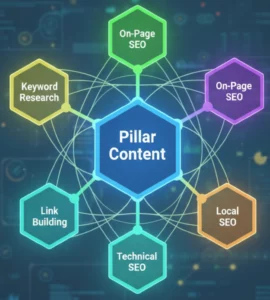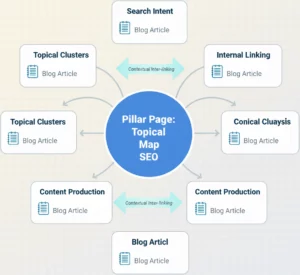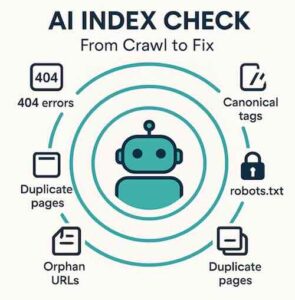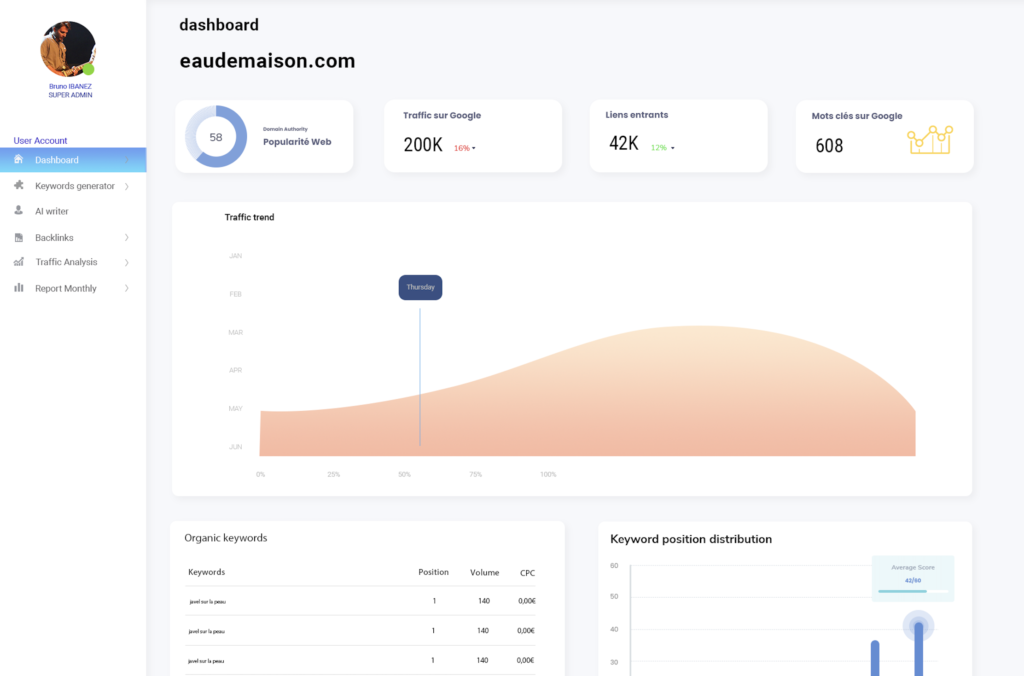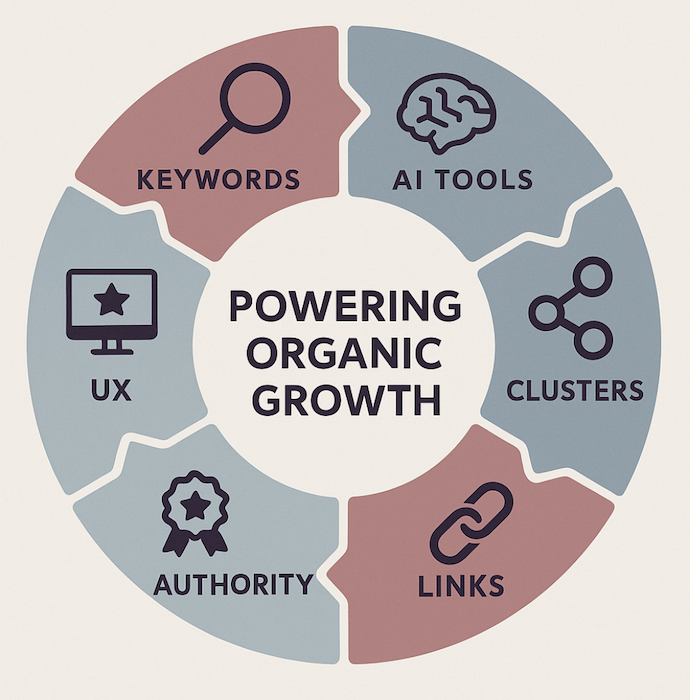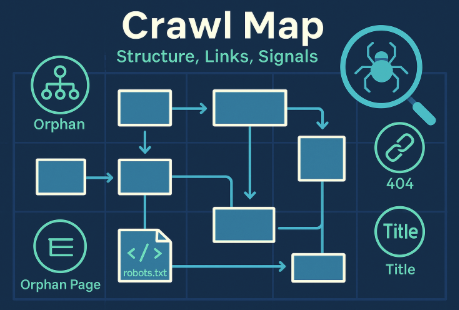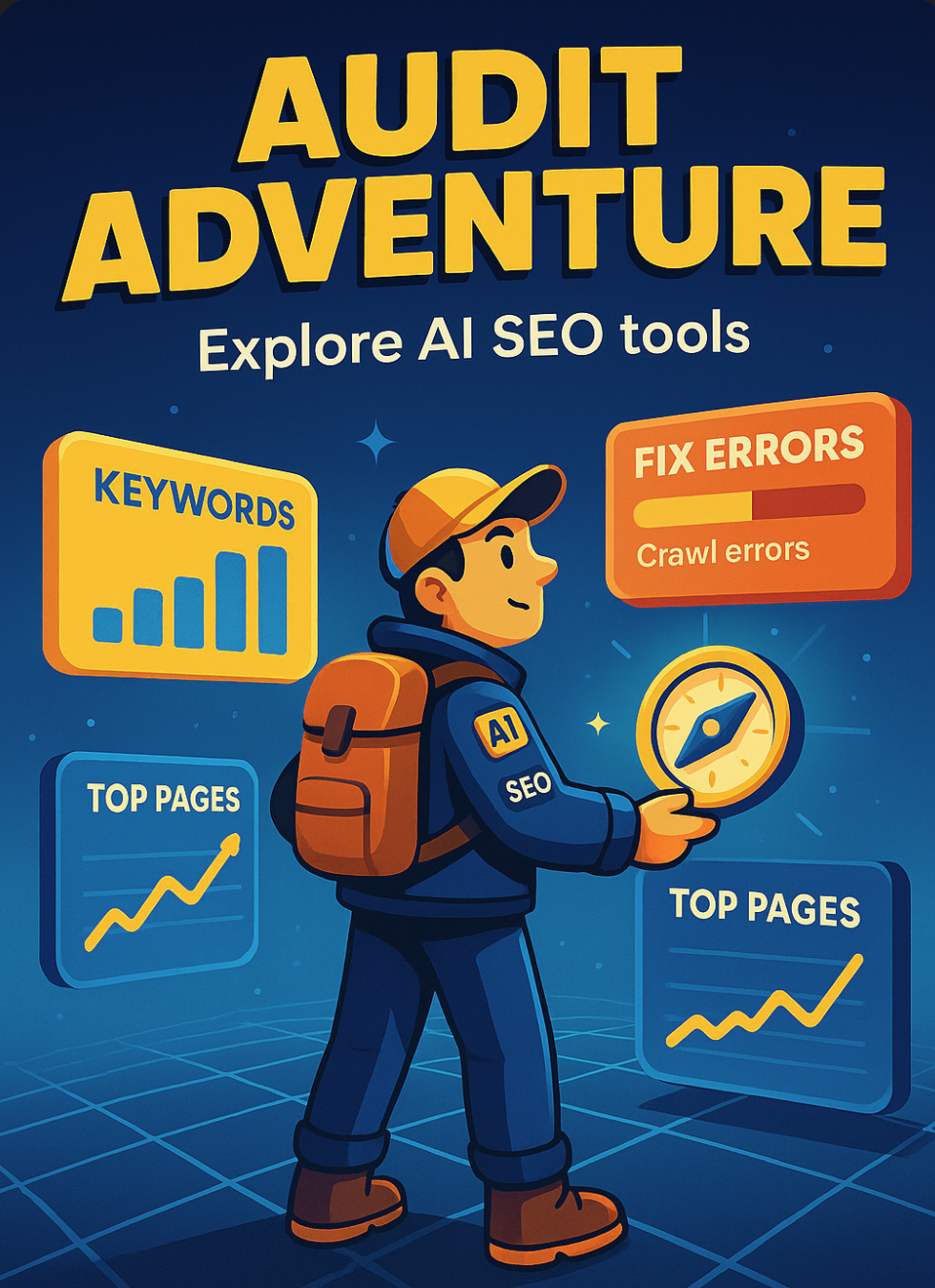
HomeBlog AI SEOSEOSEO marketingSEO tipsWhy integrate a blog into a site for natural referencing purposes?
Why integrate a blog into a site for natural referencing purposes?
Why integrate a blog into a site for natural referencing purposes?

Nowadays, blog SEO has become an integral part of any web SEO agency’s strategy. Not only does it contribute to improving a site’s organic SEO, but it also promotes user engagement. Let’s see why.
Table of Contents
Toggle1. A blog improves your organic SEO
Firstly, a blog is an excellent way to regularly add fresh content to your site. Search engines, particularly Google, appreciate sites that are regularly updated. This is one of the reasons why a blog can improve your organic SEO.
The blog for the integration of keywords
In addition, a blog allows you to naturally integrate relevant keywords into your content. You can thereby increase your site’s visibility for these search terms. This is an important aspect of SEO.
Benefits of a blog in terms of SEO
- Fresh and regular content: Search engines, like Google, favor sites that update their content regularly. By having a blog and updating it regularly, you provide search engines with fresh content to index, which can help improve your ranking.
- Keywords: A blog gives you the opportunity to organically integrate relevant keywords related to your industry into your posts. This allows search engines to better understand what your site is about and associate these keywords with your site, which can improve your ranking for these terms.
- Backlinks: By producing quality content on your blog, you increase the chances that other sites will link to yours. Backlinks are an important ranking factor for search engines. The more you have, and the higher their quality, the better your ranking will be.
- User engagement: A blog enables user engagement with interesting and relevant content. Search engines take into account user behavior on your site, such as the amount of time spent on your site and the bounce rate. An engaging blog can increase the time spent on the site and reduce the bounce rate, which can help improve your ranking.
- Shareable content: Blog content is easy to share on social media and other platforms. The more your content is shared, the more visibility you get, which can lead to more traffic and a better ranking.
- Domain authority: A well-written and informative blog can help establish your site as an authority in your industry. Search engines favor sites that are considered authorities, which can improve your ranking.
- Long tail keywords: Blog articles are a great opportunity to incorporate long tail keywords, which are longer and more specific phrases that users might search for. These types of keywords are often less competitive, which means they can be easier to rank for.
2. A blog promotes user engagement
Next, a blog can help increase user engagement on your site. It provides the opportunity to create appealing content that can encourage visitors to spend more time on your site. This can in turn have a positive impact on your SEO.
User engagement: a key to SEO
Indeed, search engines take into account the time users spend on your site to determine its relevance. The longer users spend on your site, the more search engines consider your content to be relevant. Thus, a blog can contribute to improving your ranking in search results.
3. A Blog Increases Your Brand’s Visibility
Moreover, a blog is an excellent way to increase the visibility of your brand. By producing quality content that answers your audience’s questions, you can position yourself as an expert web SEO agency in your field. This can help to strengthen the trust and loyalty of your customers.
A Blog: A Showcase for Your Expertise
Furthermore, by sharing your knowledge and expertise through your blog, you can attract new prospects. Indeed, when these individuals are looking for information on search engines, they are likely to come across your content. If it is useful and informative, they will be more inclined to use your services.
4. A Blog Facilitates the Acquisition of Backlinks
Lastly, a blog can help you obtain backlinks, which are crucial for SEO. Indeed, when you produce quality content, other websites are more likely to link to your content. This can improve your domain authority and, therefore, your ranking in search results.
Backlinks: A Boost for Your SEO
Backlinks are one of the factors taken into account by Google to determine the relevance and authority of your site. Thus, by obtaining backlinks through your blog, you can improve your blog’s SEO and, consequently, your site’s traffic.
In conclusion, a blog is a powerful tool for improving your site’s SEO. Whether it is to enhance your organic SEO, increase user engagement, enhance your brand’s visibility, or obtain backlinks, a blog can play a key role. It is therefore essential for any web SEO agency to consider integrating a blog into its SEO strategy.
5. The Blog Promotes User Engagement
Another major advantage of a blog for blog SEO is that it promotes user engagement. A blog allows visitors to your site to engage more with your content, which can lead to an increase in the duration of their visits and the number of pages viewed.
User Engagement: A Key Factor for SEO
Google takes user engagement into account when ranking sites in search results. Therefore, the more engaged your users are, the better your ranking. By providing quality content on your blog, you can encourage your users to spend more time on your site, which can improve your SEO.
6. The Blog as a Conversion Tool
Finally, a blog can also play a key role in converting your visitors into customers. By providing informative and useful content, you can earn your visitors’ trust and encourage them to use your services.
Conversion: The Ultimate Goal of SEO
After all, the ultimate goal of organic SEO is to attract traffic to your site and convert this traffic into customers. By using your blog as a conversion tool, you can maximize the benefits of your SEO strategy.
Conclusion
In conclusion, integrating a blog into your website is an essential strategy for improving your SEO. Whether it’s to enhance your organic SEO, increase user engagement, enhance your brand’s visibility, obtain backlinks, or convert visitors into customers, a blog can play a key role in the success of your SEO strategy. Therefore, if you are an SEO agency, it would be wise to consider integrating a blog into your website.

Éric Ibanez
SEO Writer - CEO @hacktheseo
An expert in SEO since the launch of his e-commerce dedicated SAAS in 2016, Eric quickly grasped the significance of optimization for search engines to acquire new clients. Building on this expertise, he authored a book in 2019, published by Dunod, providing invaluable insights for succeeding in the e-commerce world. Recently, Eric introduced an innovative SAAS, leveraging artificial intelligence to assist entrepreneurs in enhancing their visibility on Google through simplified SEO.


